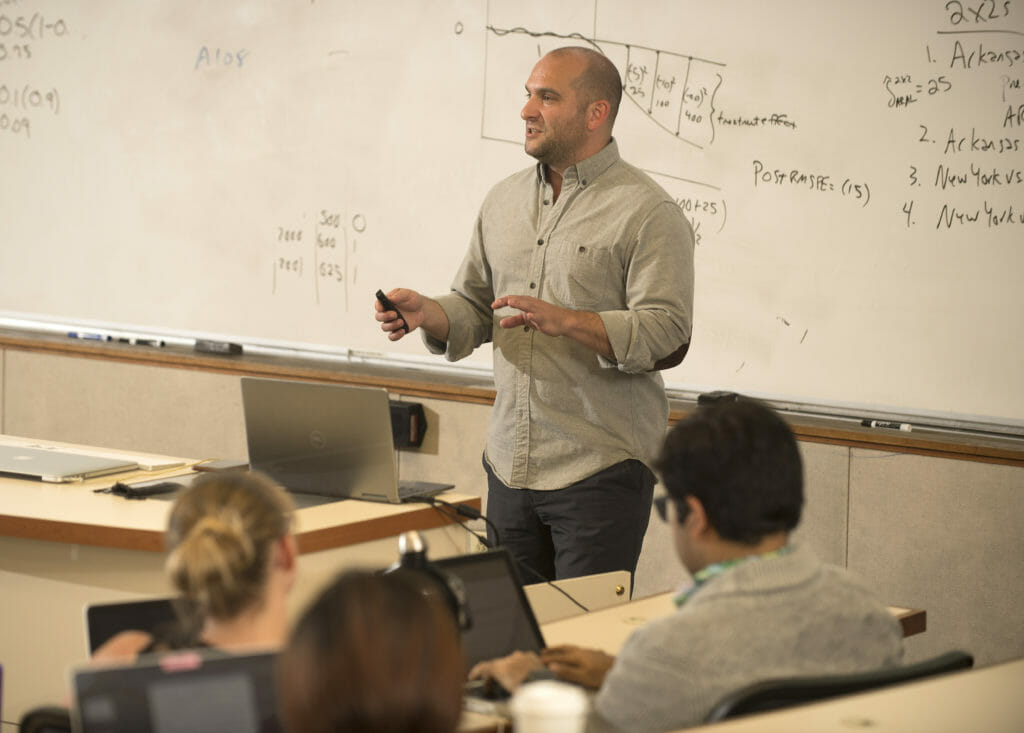Computational Justice Lab Receives $5.4 Million Award from the Charles Koch Foundation

The Charles Koch Foundation (CKF) has awarded $5.4 million to the university’s Computational Justice Lab, which uses data and social sciences to assist and inform efforts to reform the criminal justice system.
Under the leadership of Greg DeAngelo, who serves as the lab’s Founding Director and is an Associate Professor of Economics in the Division of Politics & Economics, the grant—which will be distributed over five years—will enable the lab to expand its data science efforts and grow the number of faculty, graduate students, and post-docs whose research leads to real-world applications and policy change.
“This is an incredibly generous gift from the Charles Koch Foundation that will significantly advance the imprint of our university’s teaching, research, and impact on many critical issues of criminal justice reform today,” said DeAngelo. “Our lab will be able to educate and empower a whole new generation of data scientists to reveal knowledge about the criminal justice system that has remained largely unknown.”
The Computational Justice Lab, which DeAngelo founded upon his arrival at CGU last year, creates a fusion among social science research, legal research, and computer science to advance criminal justice reform by identifying the impact of policies, incentives, and actions on public safety and generating alternative solutions to effectively deal with those situations.
The grant, says DeAngelo, will enable the lab “ to educate and empower a whole new generation of data scientists.”
“We’re proud to support scholars whose discoveries can benefit millions of people who interact with the criminal justice system,” said Ryan Stowers, executive director of the Charles Koch Foundation. “The Claremont team’s interdisciplinary research has the potential to uphold public safety and create a more constructive experience for the accused.”
Students serving as lab researchers gain first-hand experience in developing synergies between the production of research and the ability to use that research to inform and assist criminal justice practitioners.
DeAngelo said that the lab, through several current partnerships with government agencies, is already using data science tools to assist local prosecutors’ offices in understanding the outcomes of criminal cases and the impact of judicial and prosecutorial actions.
With CKF’s grant, DeAngelo expects the lab to be able to contribute not only at the local level but on a greater national stage where conversations are taking place about policy reform and the criminal justice system. He said that data science is critical to informing these conversations about reform.
“There is a difference between the way that laws are written and how they’re applied, and that’s where the Computational Justice Lab can help,” DeAngelo explained. “We are developing various data methodologies that address that difference and ideally will lead to more effective responses to the needs of the criminal justice system.”
************
About the Charles Koch Foundation
The Charles Koch Foundation supports students and scholars pursuing research and expanding educational programs that help people reach their full potential. Visit here for more information about the foundation.